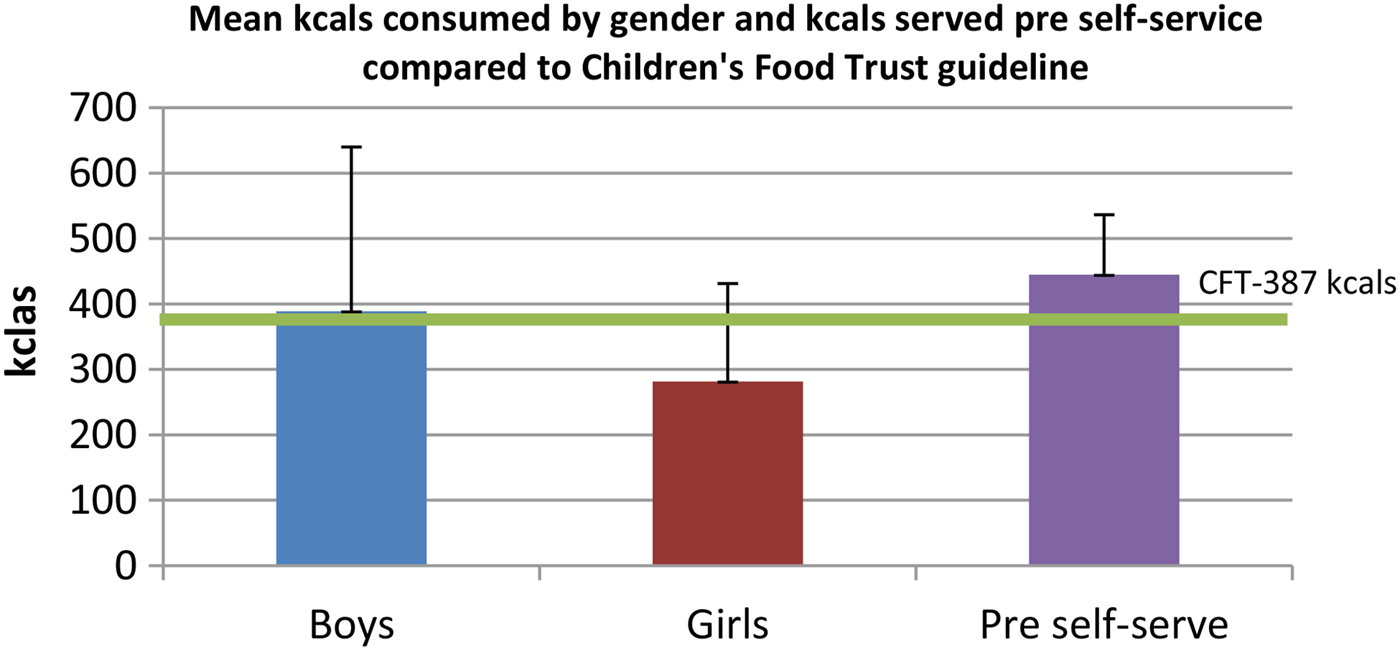The need for robust information on the consumption of food by children in nurseries is of increasing importance as the number of pre-school children attending formal childcare/early years settings is increasing, rising from 85% in 2010 to 88% in 2011(1). Some children “typically” spend up to 10 hours a day, five days a week for 48 weeks a year in childcare (Reference Lloyd-Williams, Bristow, Capewell and Mwatsama2). Much research has focused on the provision of food in nurseries, but there has been little research on the consumption of food in nurseries in England(3).
Research has been undertaken test the hypothesis that the implementation of a self-service approach at lunch by a nursery in Newcastle upon Tyne, (at the suggestion of Ofsted) will enable three to four year olds to consume sufficient macronutrients to meet the recently published Children's Food Trust (CFT) voluntary guidelines/nutrient based standards.
Ethical approval was granted for this research by the Northumbria University ethics committee. Data was gathered in one nursery in Newcastle upon Tyne at lunch time, over a period of five days in December, 2013. Twenty children were observed (n = 10 boys, n = 10 girls) in total. Two boys and two girls were selected at random during each observation period. No child was observed twice.
The results show that there is a clear gender divide between the mean (but not statistically different) amounts of macronutrients consumed by gender. Boy's mean consumption of kilocalories, carbohydrates and fat met the CFT voluntary guidelines, but the girls’ did not. Figure 1 below shows the mean consumption of kcals by gender and mean kcals served pre-self-service, compared to the voluntary CFT guidelines. A similar trend was observed across all macronutrients. However, analysis of food consumed by each observed child showed that 70% (n = 14) of children did not consume enough energy (although 15%, (n = 3), consumed between 80–85% and of the recommended kcal amount, but 25% (n = 5) over consumed the recommended level). 65% of children did not consume enough carbohydrate or fat. Both genders over consumed the min recommended protein level of 4·7 g. Analysis of the nursery menu shows that nursery meals/portion sizes served prior to self-service met the CFT voluntary guidelines.

Fig. 1. Comparison of mean amount of kcals consumed by gender at lunch over five days and mean amount of kcals provided prior to the introduction of self service compared to the Children's Food Trust voluntary guidelines.



